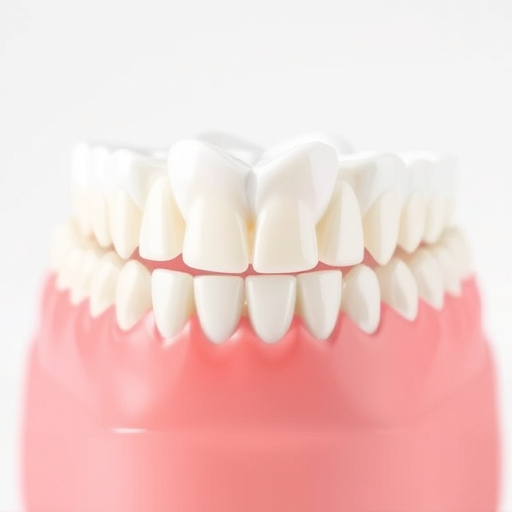Early signs indicating a potential need for oral surgery procedures include severe tooth pain (often linked to wisdom teeth, decay, or gum disease), mouth and gum swelling, bleeding, chewing/swallowing difficulties, facial swelling, and lumps. Untreated conditions may progress, necessitating advanced oral surgery like dental implants. Prompt professional intervention is crucial for avoiding complications like crown requirements.
Are you experiencing persistent tooth pain, facial swelling, or noticeable jaw issues? These could be signs of underlying oral problems that may require oral surgery. From tooth sensitivity and gum disease to TMJ disorders and facial traumas, early detection is key. Understanding common indicators can help you identify when it’s time to consult an oral surgeon. This article explores various oral conditions, their impact, and the benefits of procedures like tooth extractions, orthognathic surgery, and sinus surgeries, guiding you through the recovery process.
- Common Oral Issues Indicating Potential Surgery
- – Tooth pain and sensitivity
- – Facial swelling and bumps
Common Oral Issues Indicating Potential Surgery

Many common oral issues can be early indicators that you may need oral surgery procedures soon. One of the most apparent signs is severe or persistent tooth pain, which could be a result of impacted wisdom teeth, tooth decay, or gum disease. Swelling, bleeding, or intense discomfort in the mouth and gums are also red flags, often pointing to infections or inflammation that require surgical intervention.
Additionally, issues with jaw alignment and bite problems can cause significant discomfort and affect your overall oral health. Misaligned jaws may lead to difficulty chewing and swallowing, while bite issues like overbite or underbite can result in damaged teeth and gums. In some cases, these problems may be remedied through dental procedures like dental bonding or fillings, but if left untreated, they could progress, necessitating more advanced oral surgery procedures, including dental implants.
– Tooth pain and sensitivity

Tooth pain and sensitivity can be early indicators that your oral health requires immediate attention, potentially leading to the need for oral surgery procedures. If you’re experiencing sharp or persistent discomfort in a particular tooth, it might be a sign of an underlying issue. This pain could be caused by various factors such as decay, cracked fillings, or even gum disease, all of which are conditions that can be effectively addressed through restorative dentistry.
In some cases, extreme sensitivity to hot or cold foods and drinks could suggest that the tooth’s nerve is exposed or damaged, a common result of advanced decay or trauma. Such discomfort may prompt you to seek emergency dental care to prevent further complications. While minor sensitivity might be manageable with at-home care, persistent or severe pain often requires professional intervention, which can include tooth repair or more extensive oral surgery procedures depending on the severity.
– Facial swelling and bumps

Facial swelling and the presence of bumps or lumps around the jawline, cheeks, or neck can be red flags indicating a potential need for oral surgery procedures. These symptoms often signal an underlying dental issue that requires prompt attention. One common cause could be impacted wisdom teeth, where partially erupted or fully embedded teeth can lead to infection, pain, and swelling. In such cases, a dentist or oral surgeon might recommend wisdom tooth removal as a preventative measure to avoid further complications.
Additionally, unusual facial lumps could be indicative of benign tumors known as ameloblastomas, which develop from dental tissue. While some may not cause discomfort, others can result in significant pain and swelling. In these scenarios, oral surgery procedures such as enucleation (removal of the lump) or surgical excision might be necessary to alleviate symptoms and maintain overall facial esthetics. Remember, timely intervention is key; early detection and appropriate dental care can prevent more severe complications down the line, including the need for more extensive treatments like dental crowns.
If you’re experiencing persistent tooth pain, sensitivity, or visible facial swellings and bumps, it might be time to consider oral surgery procedures. These signs could indicate underlying issues that require professional attention to prevent further complications. Don’t delay seeking expert advice; early intervention can often lead to more effective outcomes and a healthier smile in the long term.














